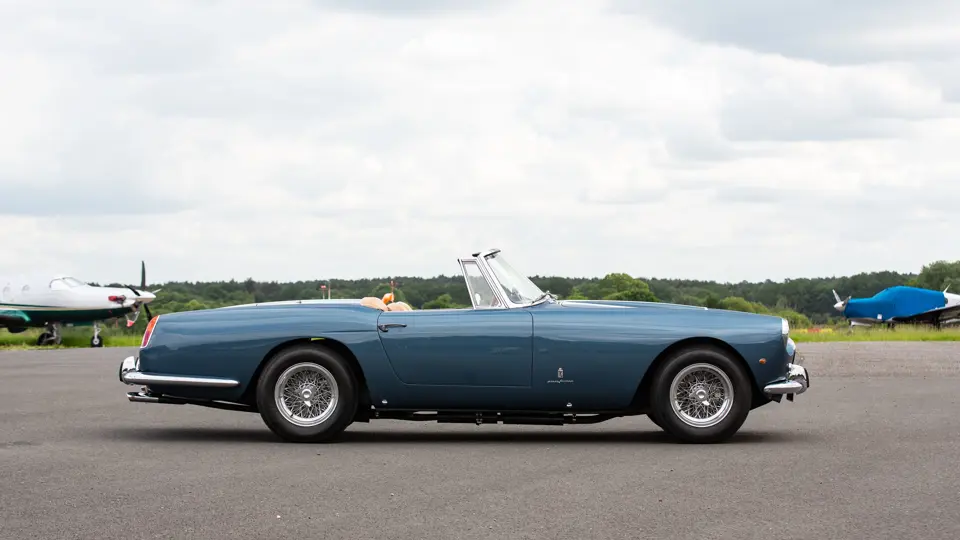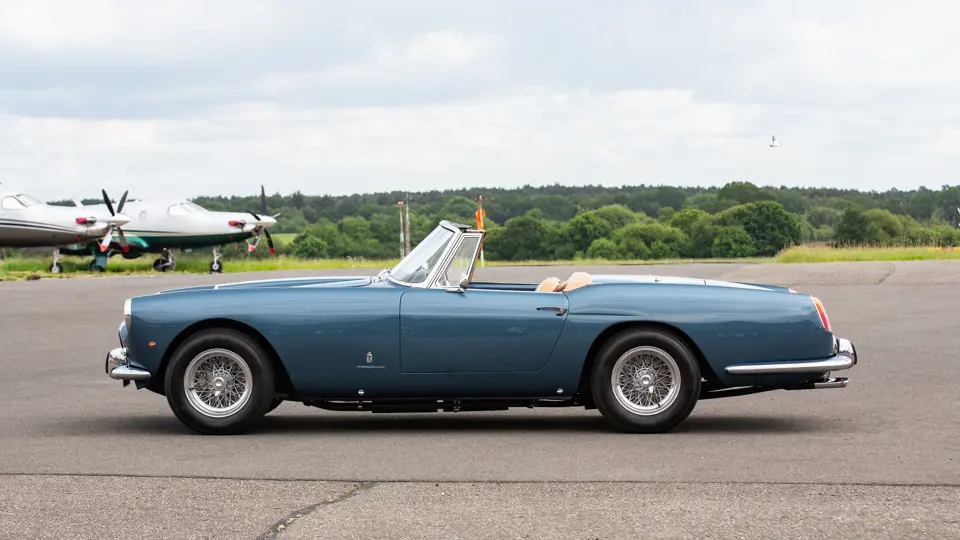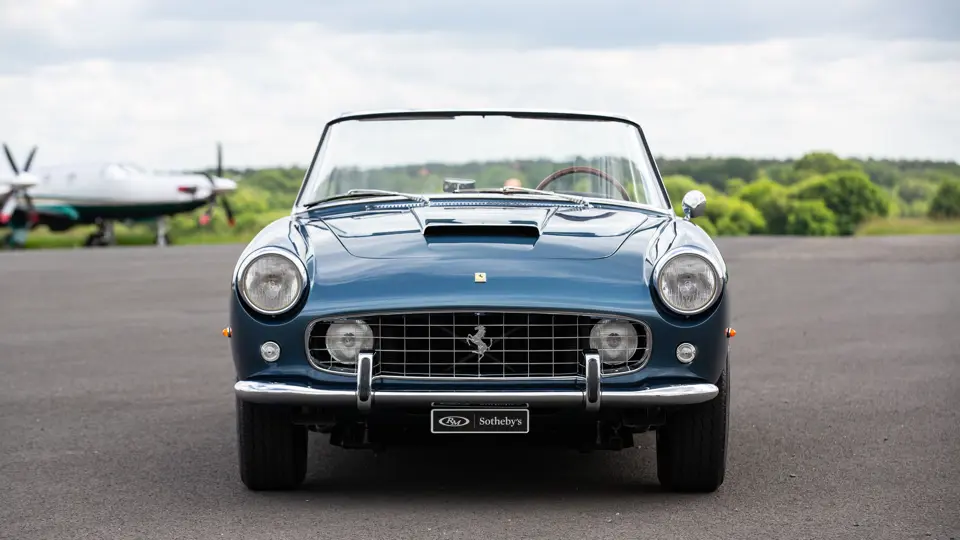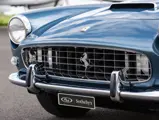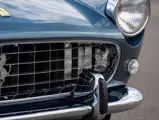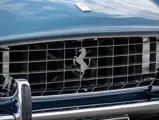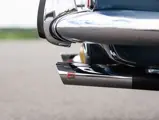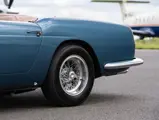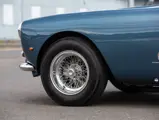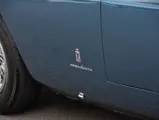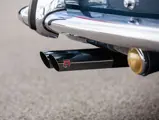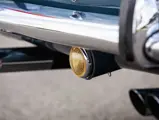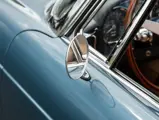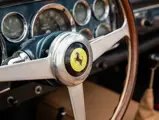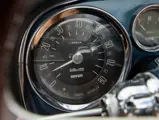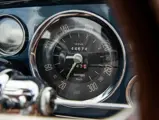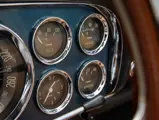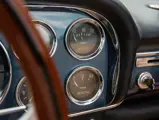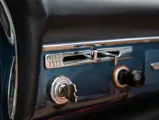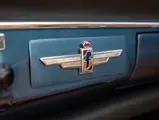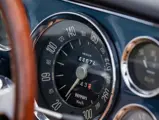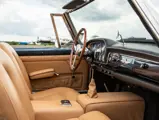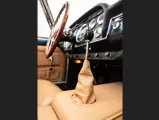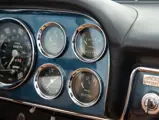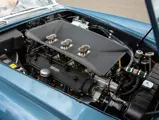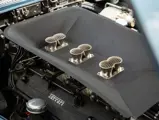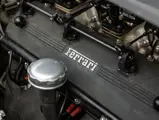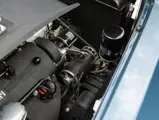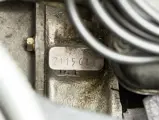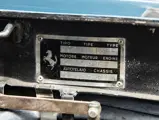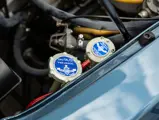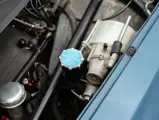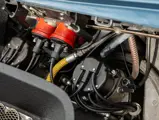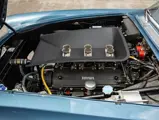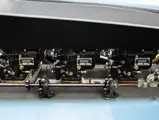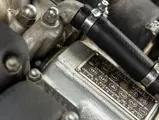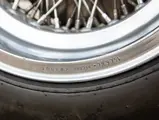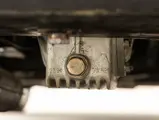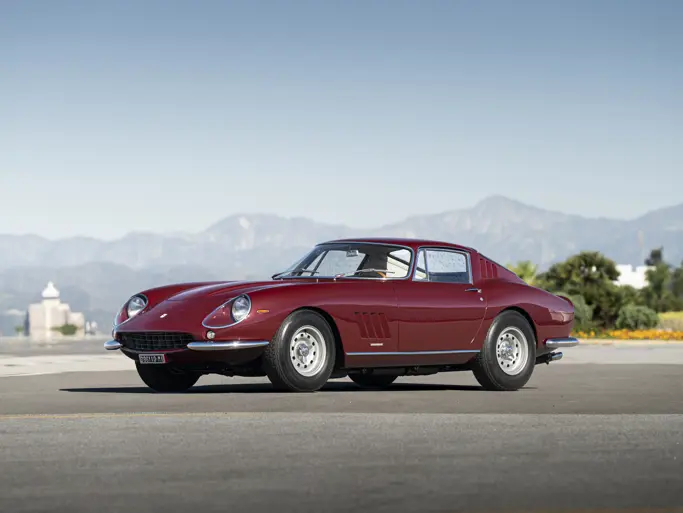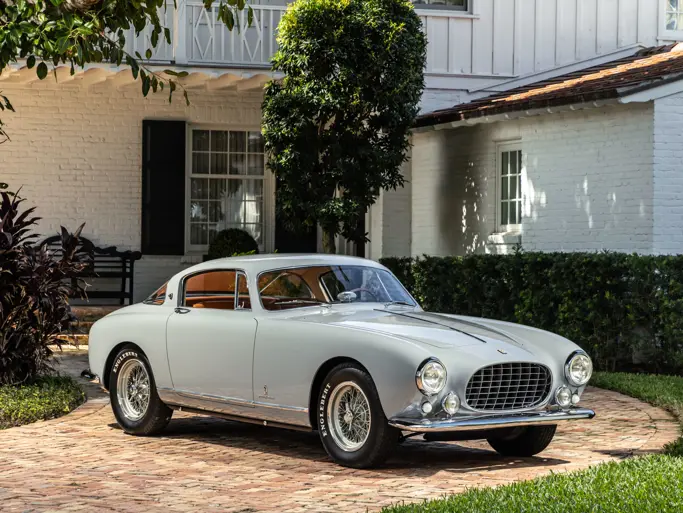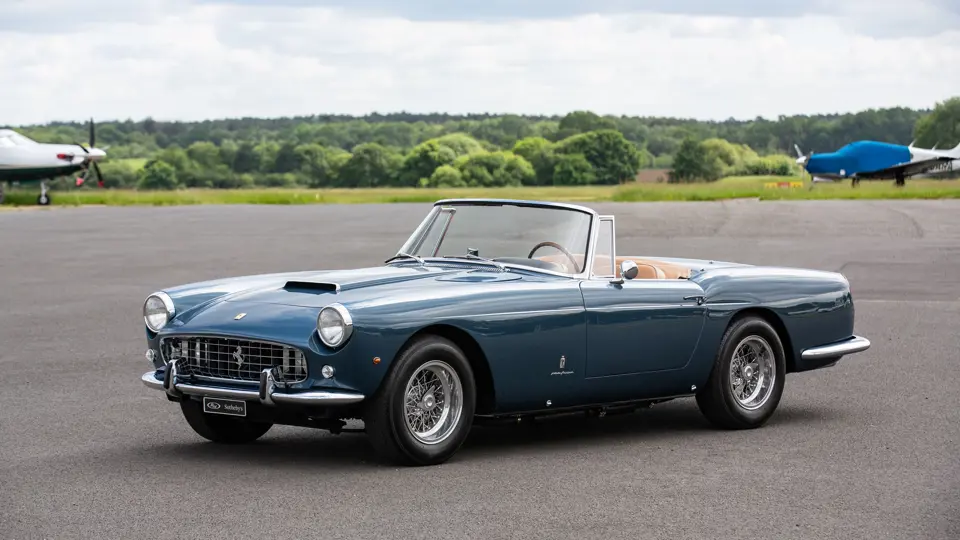
1960 Ferrari 250 GT Cabriolet Series II by Pinin Farina
{{lr.item.text}}
$1,200,000 - $1,500,000 USD | Not Sold
{{bidding.lot.reserveStatusFormatted}}
- The 84th of 200 Series II Cabriolets built
- The only 250 GT Cabriolet delivered new in the striking shade of Blu Tornado
- Direct Factory order from new by a client in Baghdad, Republic of Iraq
- Ferrari Classiche Red Book-certified in 2021, confirming its matching-numbers engine, gearbox, and differential
- Accompanied by copies of factory build records and report by marque historian Marcel Massini
During the mid- to late 1950s, Ferrari was in a state of transition; increased racing costs meant that Ferrari needed to sell more roadgoing models to pay for its extensive racing program. Although such roadgoing models were certainly offered in the past, they were essentially built to order. Variations to suit the wishes of individual customers were common, keeping costs high and volumes low, rendering them unprofitable.
Meanwhile, the 250 GT cabriolet, introduced at the Geneva International Auto Salon in 1957, was conceived as Ferrari’s semi-luxury touring car and was, thus, given better interior appointments and more soundproofing than the 250 California Spider. Its chassis and drivetrain may have been strikingly similar to Ferrari’s racing cars, but the high standard of fit and finish, as well as the car’s complete instrumentation, luxurious leather interior, and other passenger amenities, set it apart. The cabriolet was based upon the 250 GT coupe, which was also presented as a luxury touring machine, with its body produced by Pinin Farina.
Unveiled to the public at the 1959 Paris Salon, the new series II cabriolet appeared one year after the handsome, updated 250 GT Pinin Farina coupe and replaced the low-production first series cabriolet. In fact, the second series remains notable as the first commercially successful, production-based convertible model ever offered by Ferrari. While the cabriolet appeared to be somewhat longer than the coupe, thanks to a stylish “kick-up” just behind the doors and the elegant rear fenders, the cabriolet and coupe shared nearly identical overall dimensions.
Mechanically, both the 250 GT cabriolet and the coupe were considerably improved over the California, with the addition of the updated 3.0-liter, Colombo-derived V-12 engine designated Tipo 128 F. This engine, which produced 240 horsepower, was fitted with outside-plug cylinder heads and twin distributors, while an overdrive transmission was made available. The cars offered race-bred stopping power with a set of four-wheel disc brakes, while telescopic shock absorbers and handsome 16-inch Borrani wire wheels were included as standard equipment. The result was a stylish and very quick Ferrari, with acceleration to 60 mph achieved in less than seven seconds, en route to a top speed of 140 mph.
These updates resonated with Ferrari’s clientele. Production lasted part way through 1962 and 200 examples were built, far outselling the initial series of 250 GT cabriolets.
A UNIQUE 250 GT CABRIOLET
The 84th example produced, chassis number 2115 GT was sold new by the factory in October 1960 to first owner Raymond Doumith, a resident of Baghdad in the Republic of Iraq. This 250 GT was the only example to leave the factory finished in the stunning one-off color combination of Blu Tornado (MM 12909) over Pelle Nera (VM 8500). The car was further optioned with an Abarth exhaust system, Borrani wire wheels, Pirelli Cinturato tires, Borletti instrumentation in kilometers, and a Baroclem battery. In 1969 the Ferrari was imported to the United States, where it was owned by a Sidney Colberg of San Francisco, California and later a Thomas E. Thompson of Camp Springs, Maryland. The 250 GT would eventually find its way to Canada under the ownership of architect and Toronto resident Jake Silberberg in the mid 1980s. In the late 1990s it was restored to its factory configuration.
Chassis number 2115 GT was later sold by Modena Motorsport GmbH in Langenfeld (Düsseldorf), Germany to Ralf-Guido Kiwit of Meerbusch (Düsseldorf), Germany. The 250 GT participated in Ferrari Racing Days at the Nürburgring in September of 2002. In July 2005 Kiwit showed the Ferrari at the 11th Modena Motorsport Track Days at the Nürburgring. In July 2006, Kiwit drove the Ferrari in the Tour Inter Europa and showed the car at the Concours d’Elegance in the Rhineland-Palatinate part of Germany. Kiwit sold the 250 GT in 2013 through Modena Motorsport to a client in Dubai, United Arab Emirates.
By the Fall of 2016, the chassis number 2115 GT was back in the United States. The most recent ownership, a respected Ferrari collector based in the UK, purchased the 250 GT in 2018; during their tenure the Ferrari has been sparingly driven. It achieved Ferrari Classiche Certification in 2021, confirming that it retained its matching-numbers engine, gearbox, and differential.
Today chassis 2115 GT is finished in a lovely shade of blue metallic with a blue convertible top over a Pelle Beige interior. It is equipped with a driver sideview mirror and Marmitte ANSA exhaust, and rides on Avon tires mounted on Borrani knock-off wire wheels. The interior is nicely appointed, with the Pelle Beige complemented nicely by a wood-rimmed steering wheel and a color-matched dashboard with full suite of Veglia instrumentation, with speedometer in kilometers. The 3.0-liter Columbo V-12 is fueled by three Weber 40DCL6 carburetors. It is backed by a four-speed synchromesh gearbox sending power to a 7x32 differential. The Ferrari is offered with copies of factory build records, Ferrari Classiche Red Book, and Massini report.
A true gentleman’s Ferrari, this 250 GT Cabriolet Series II, exhibiting a stunning Pinin Farina design and boasting Ferrari Classiche Certification, would be a wonderful cabriolet for the driving enthusiast looking to experience Ferrari performance and luxury at its finest level.
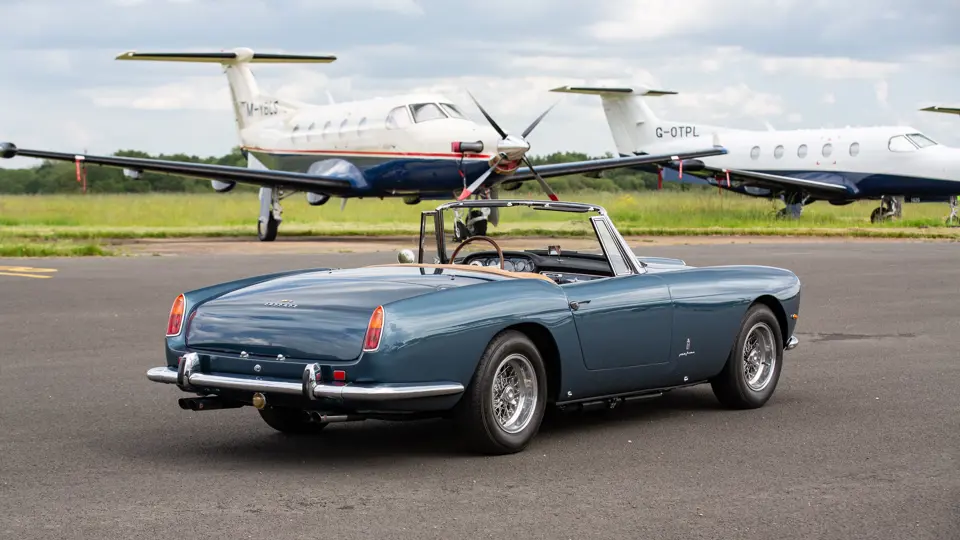



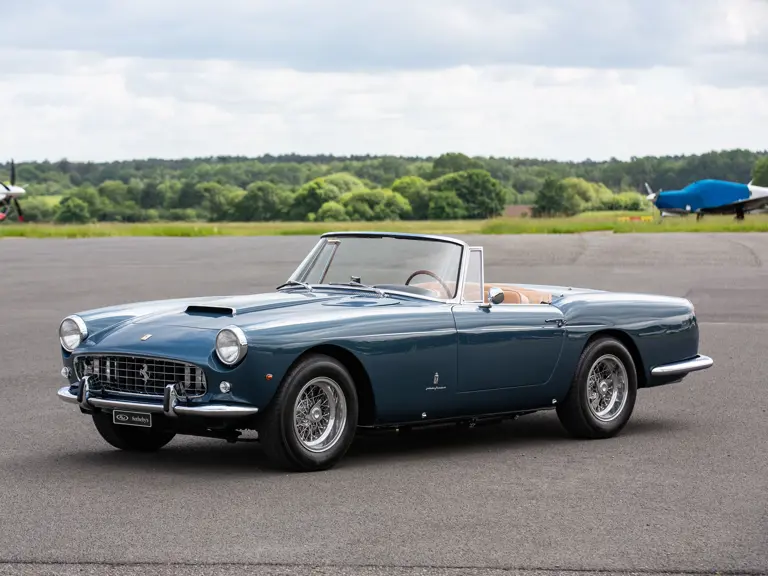
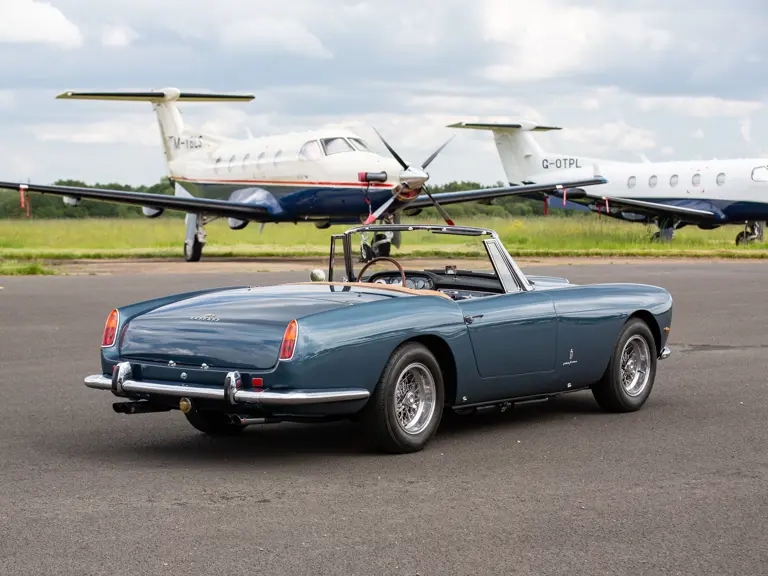
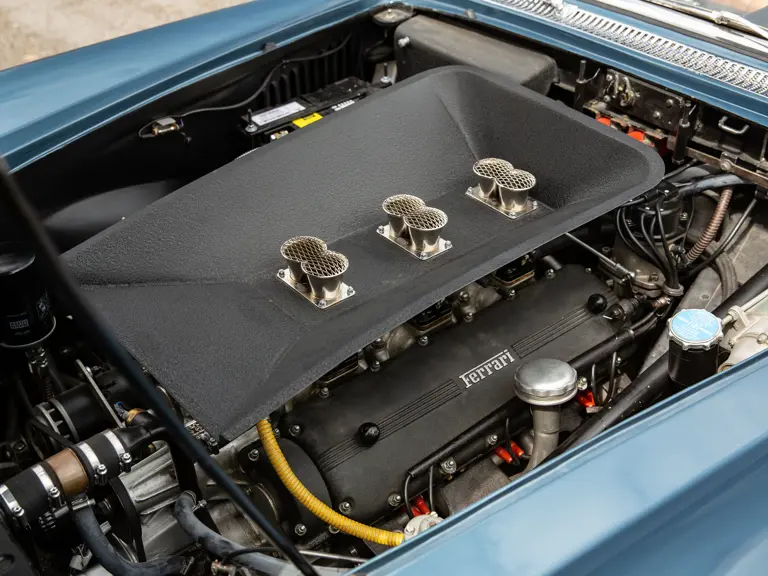
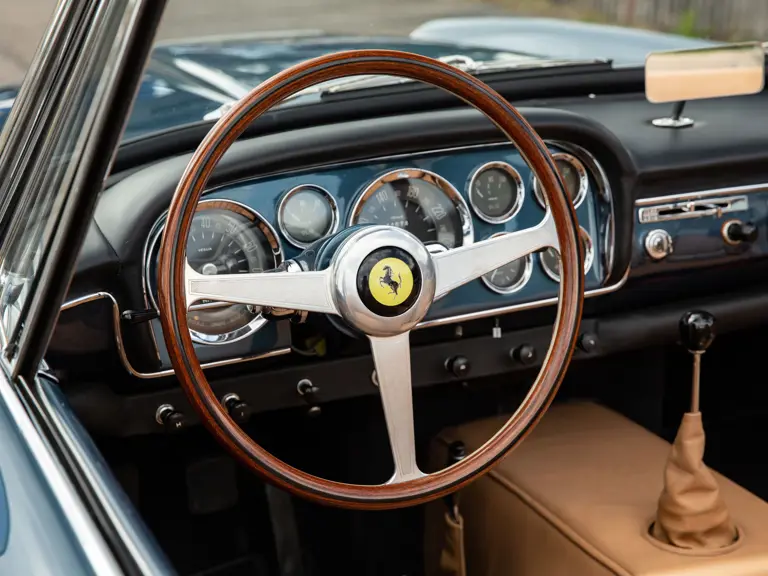
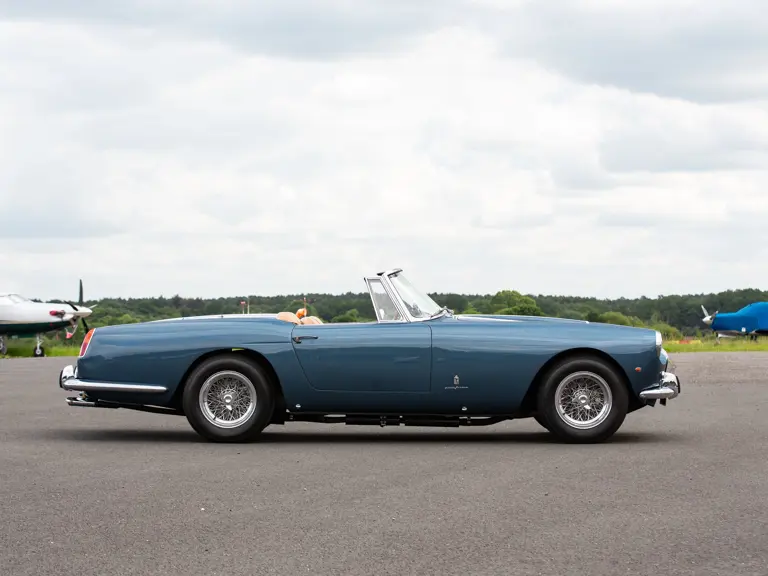
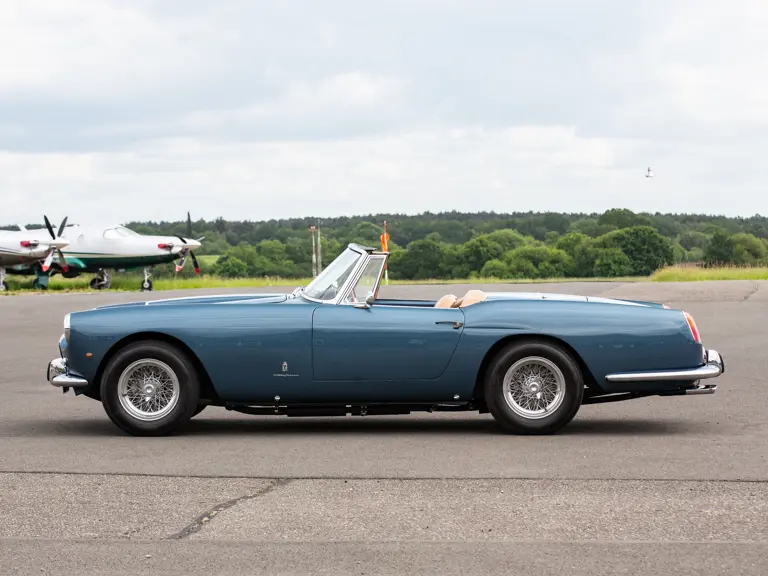
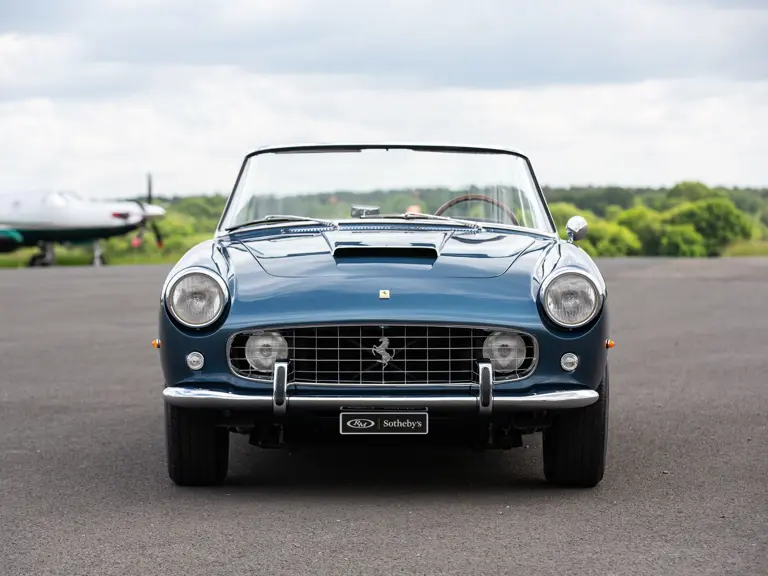
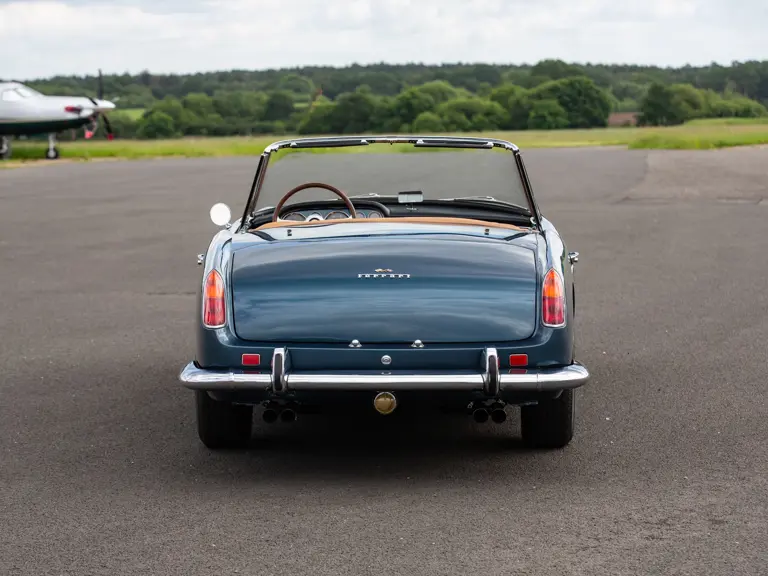
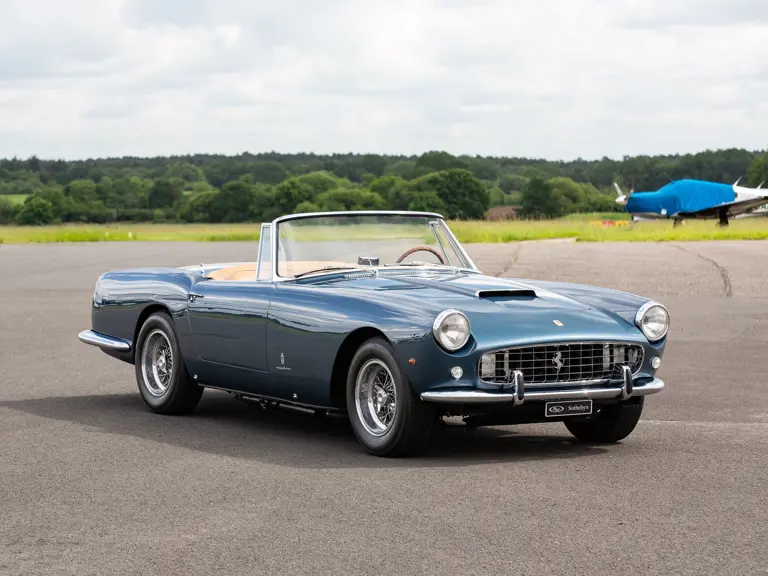
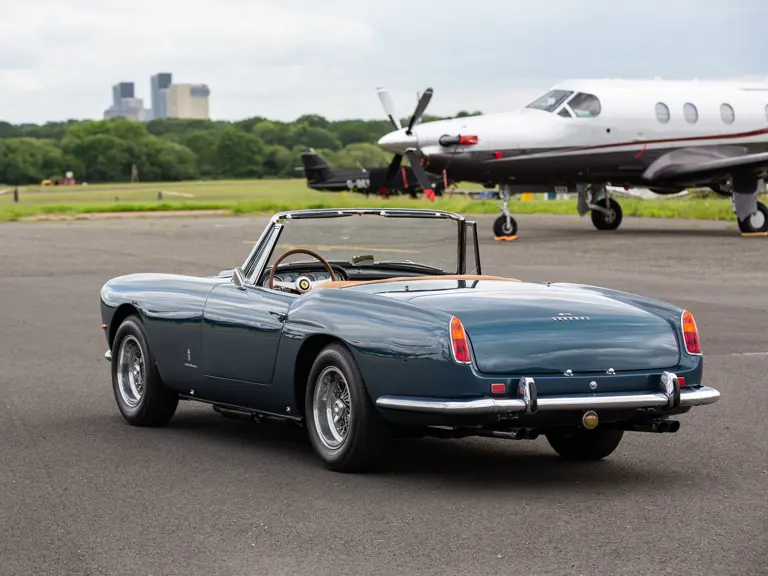
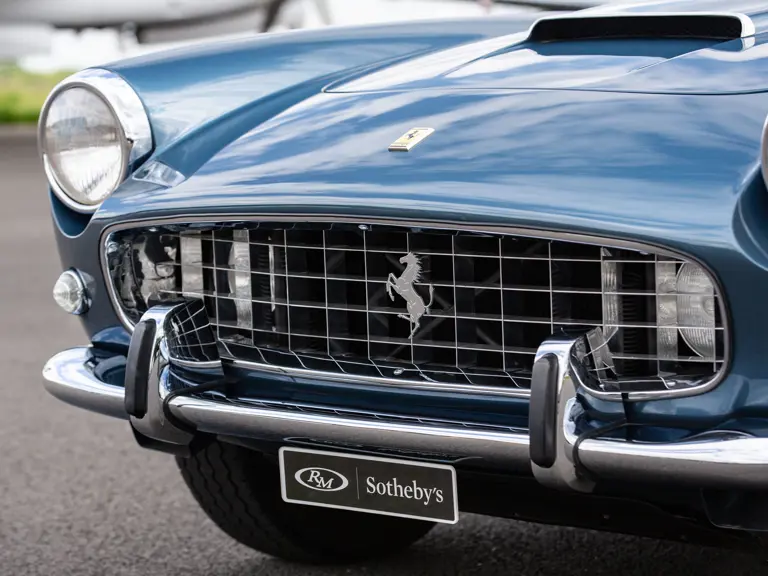
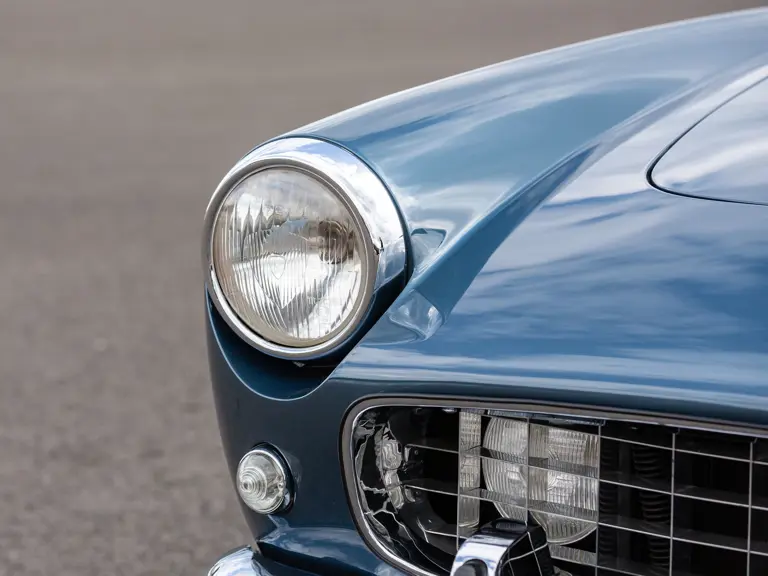
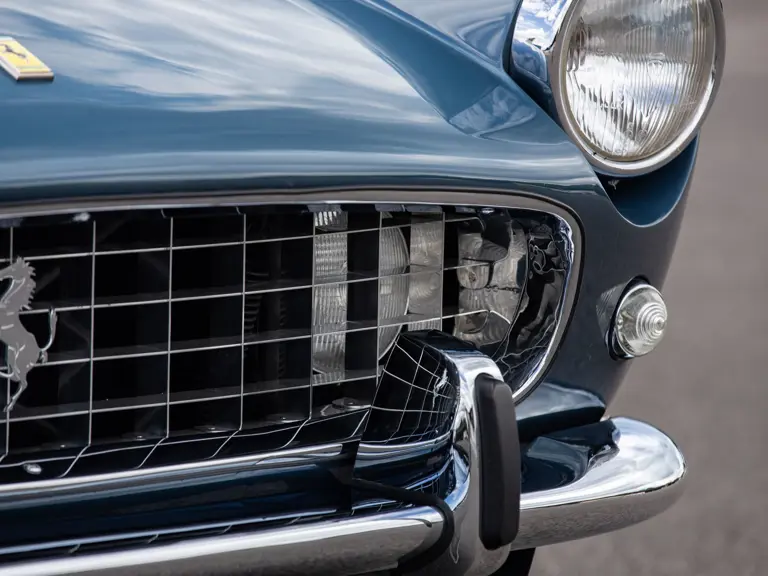
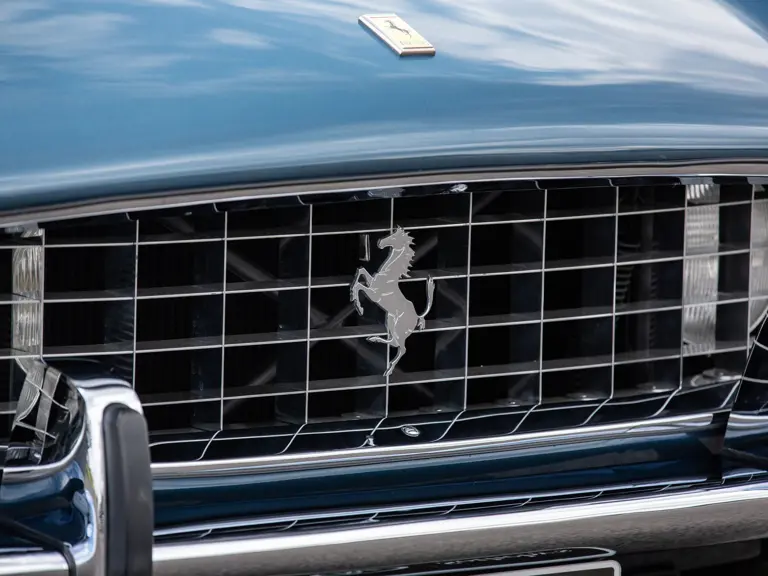
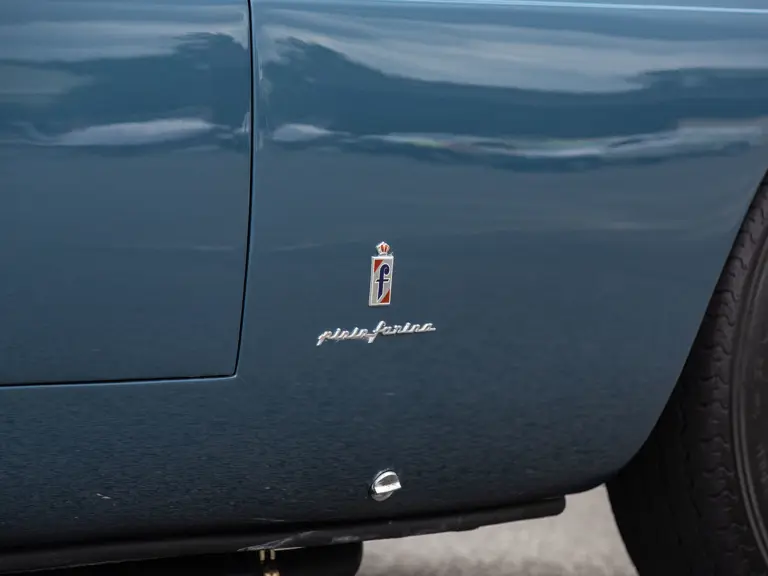
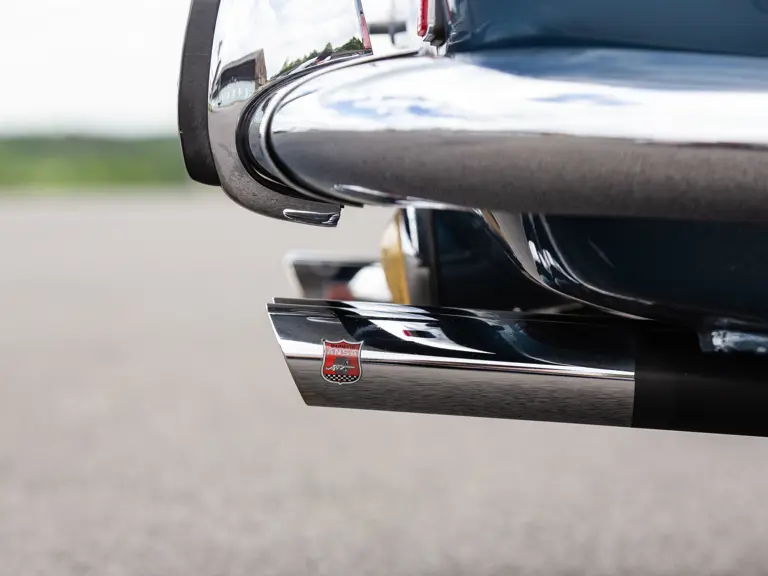
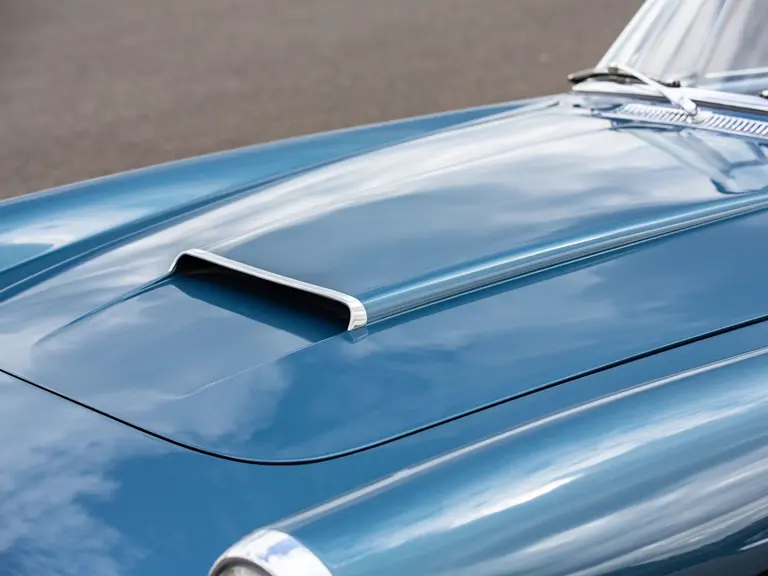
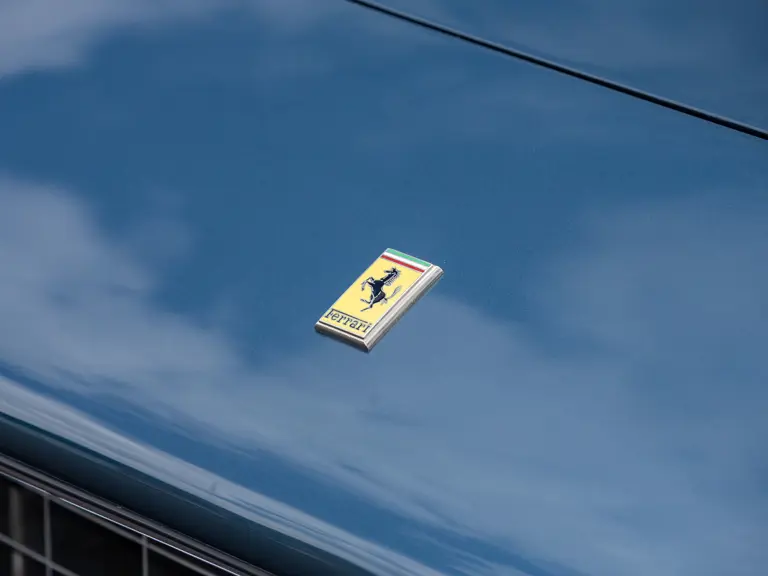
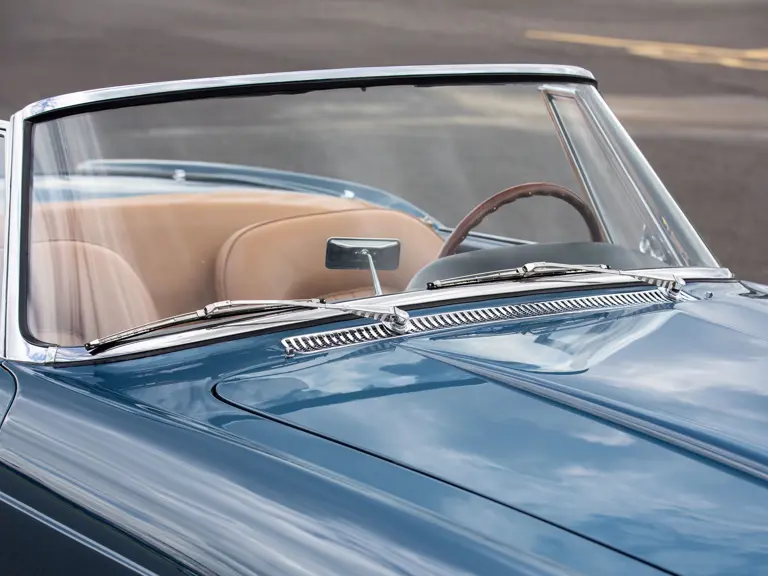
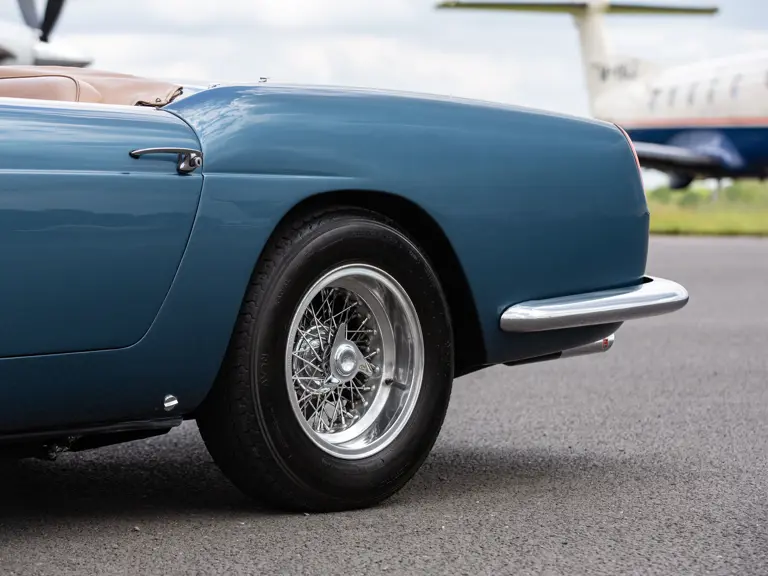
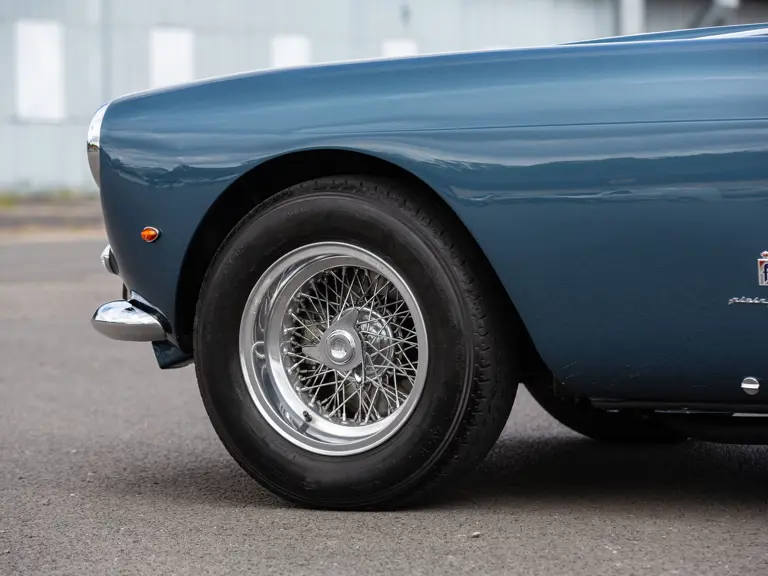
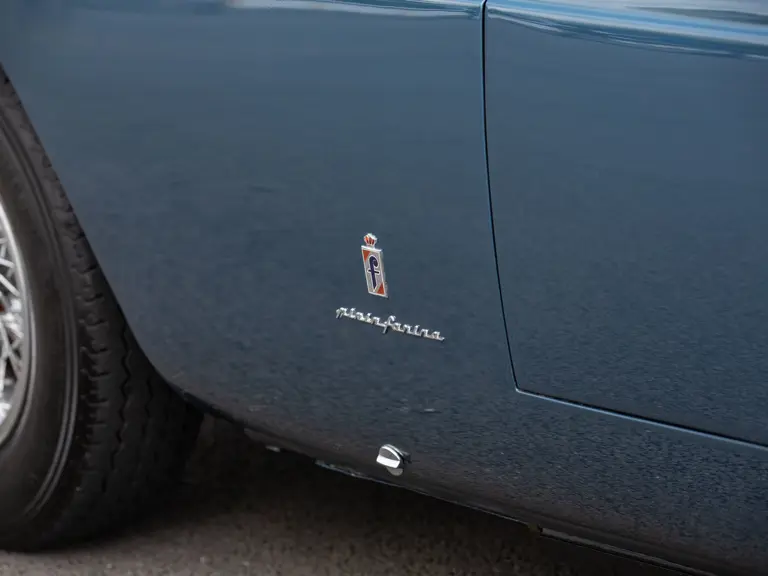
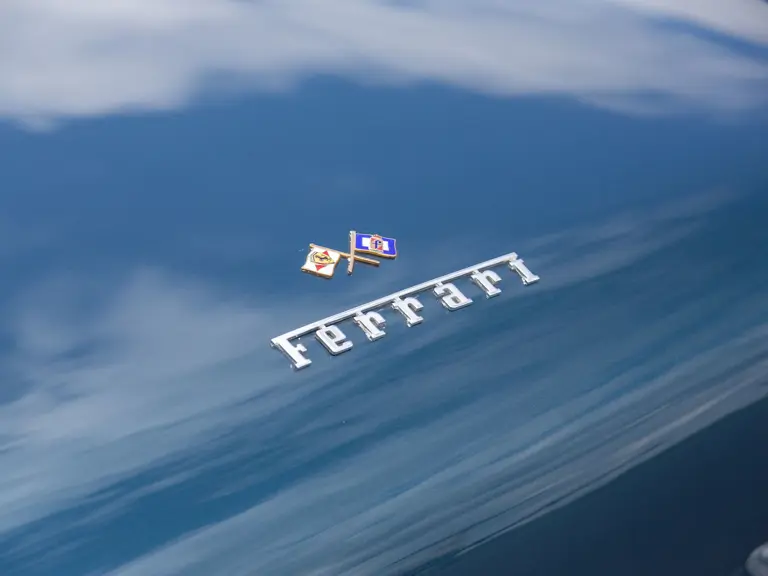
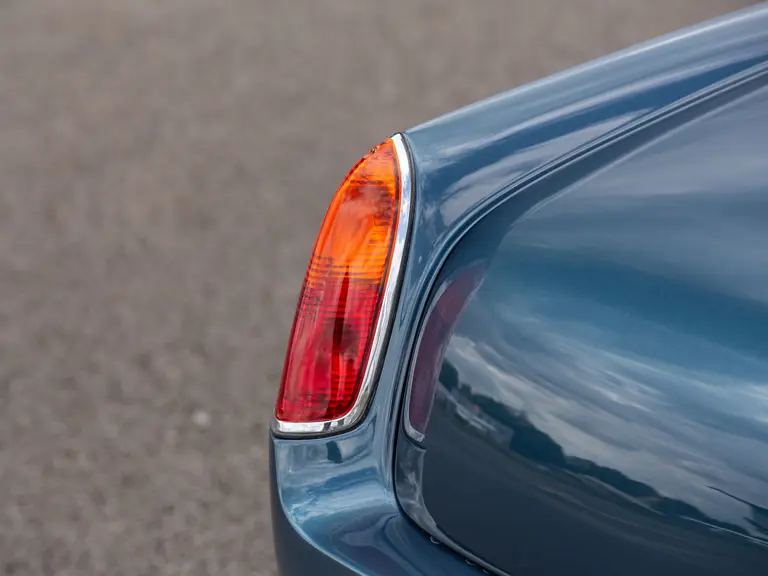
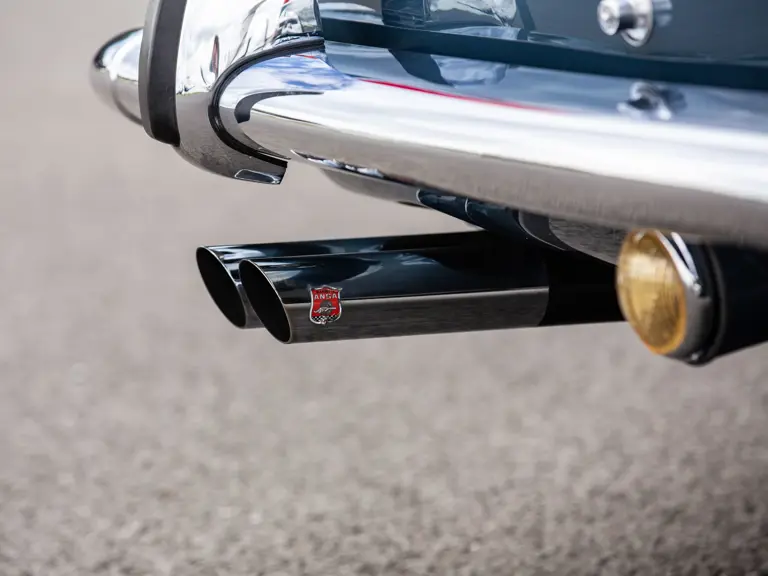
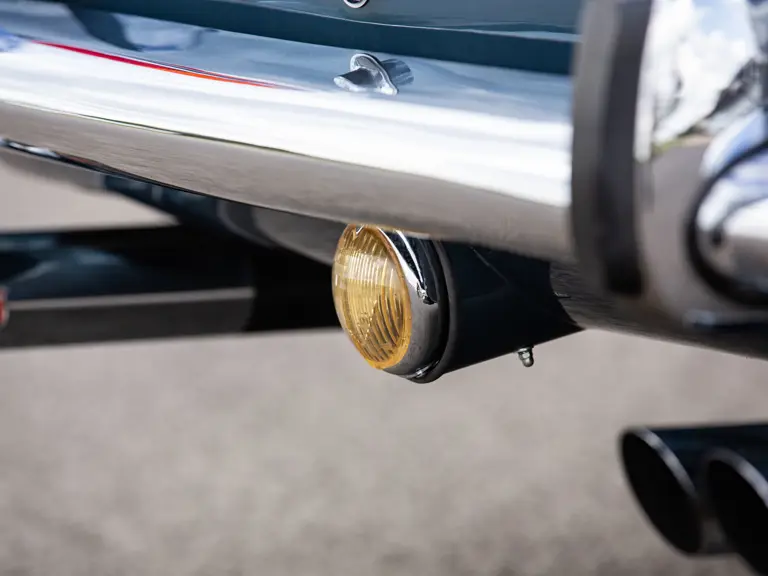
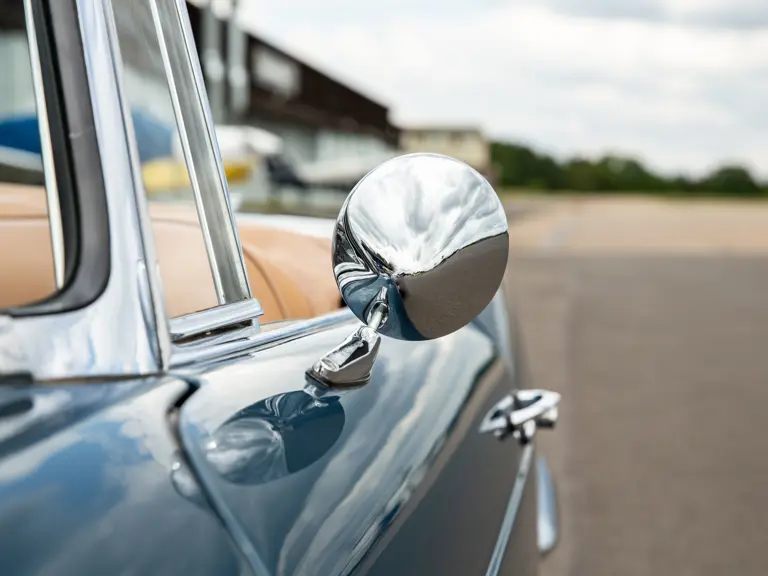
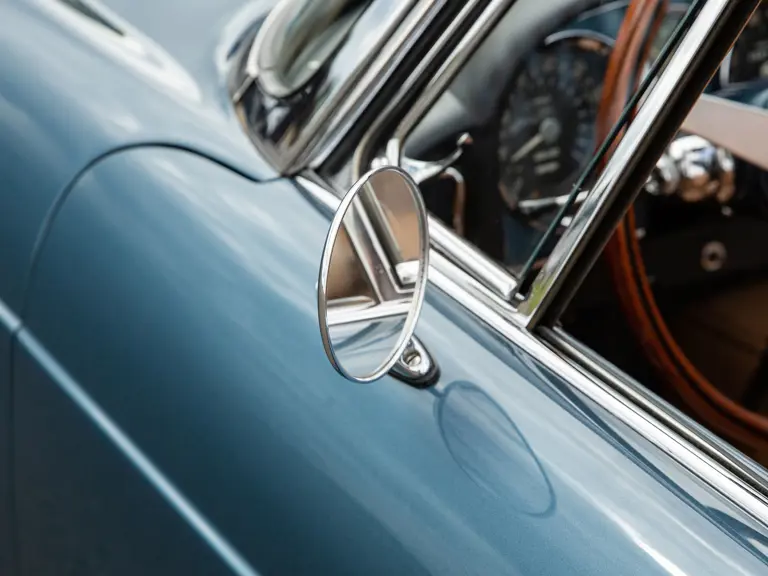
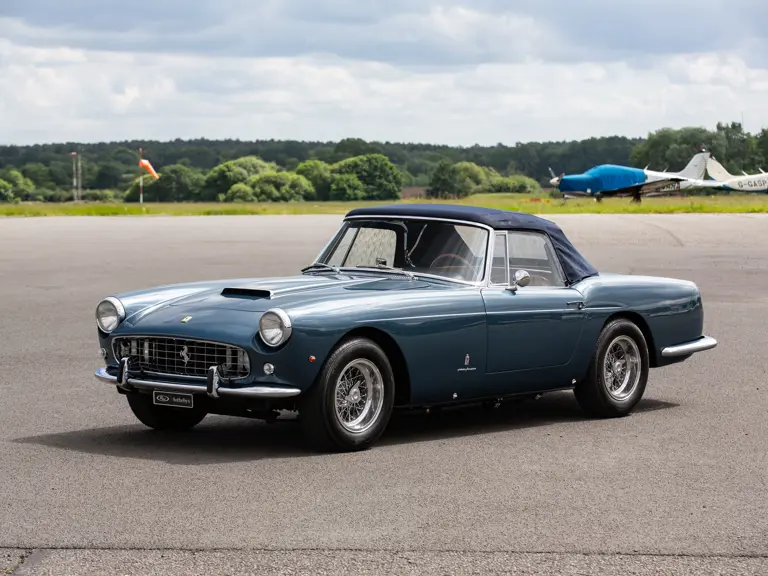
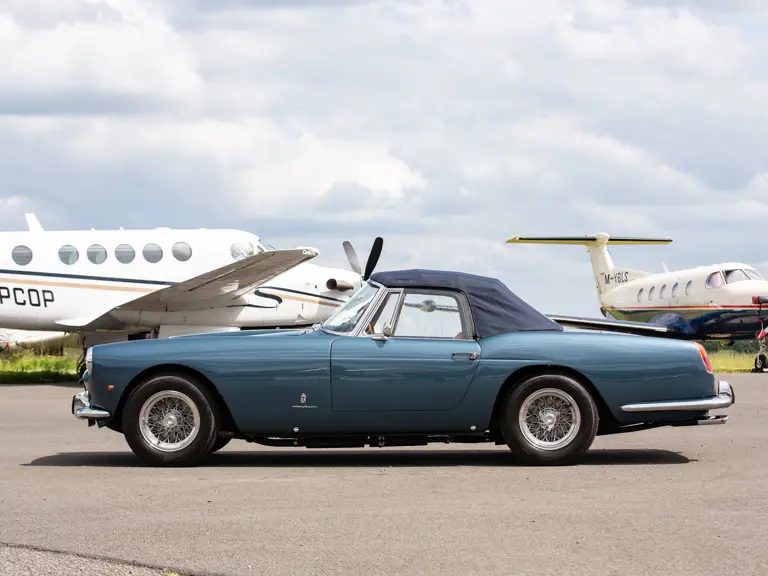
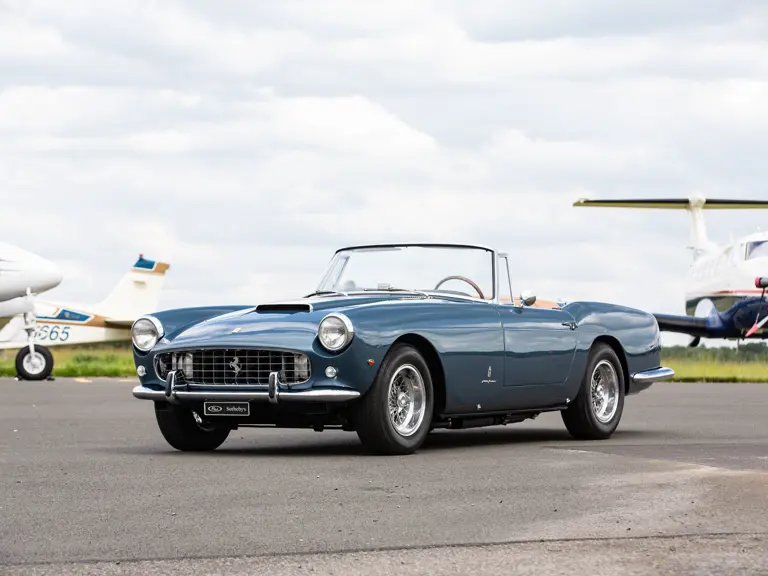
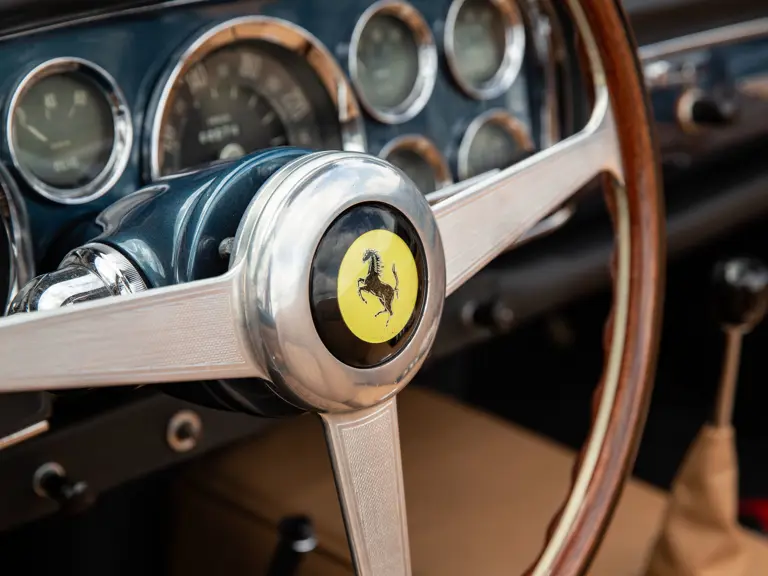
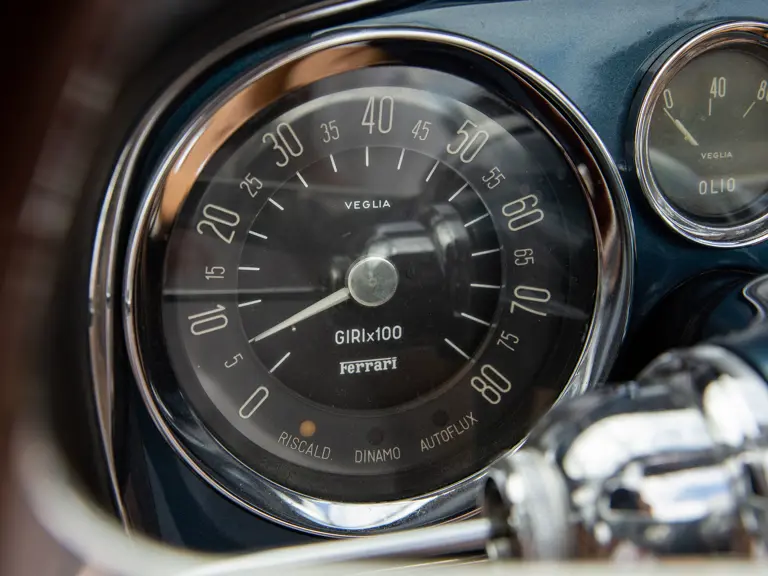
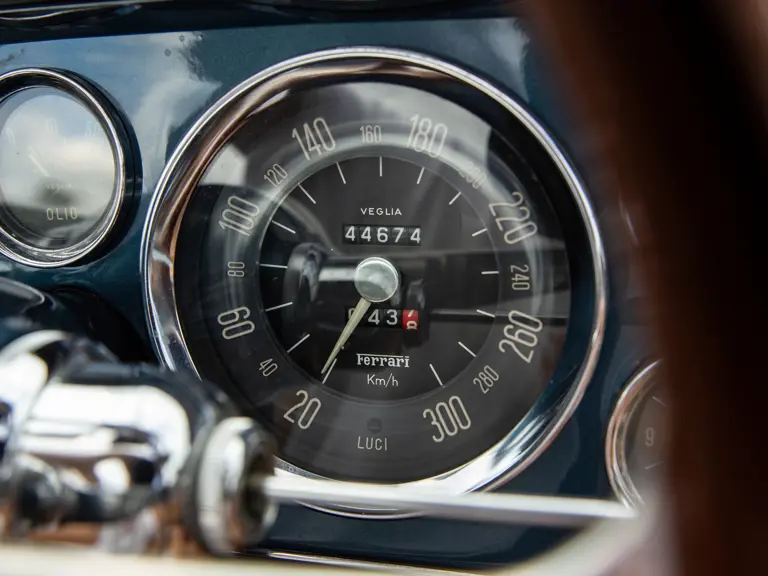
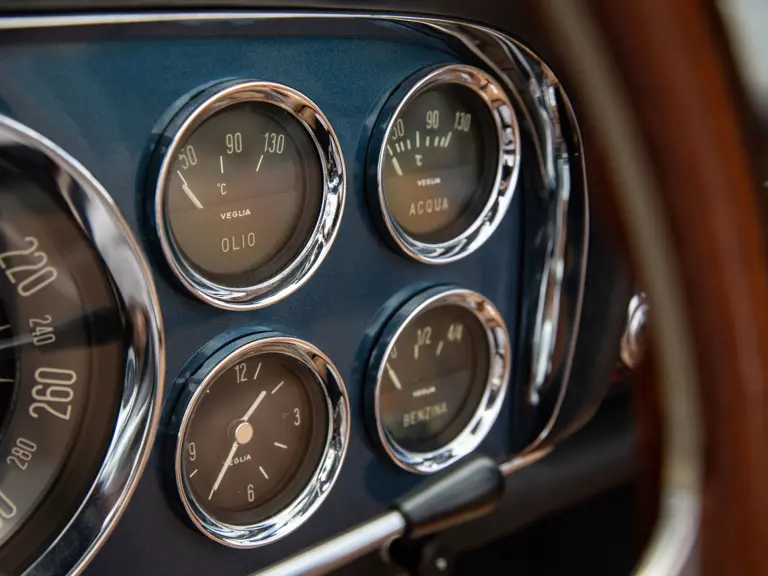
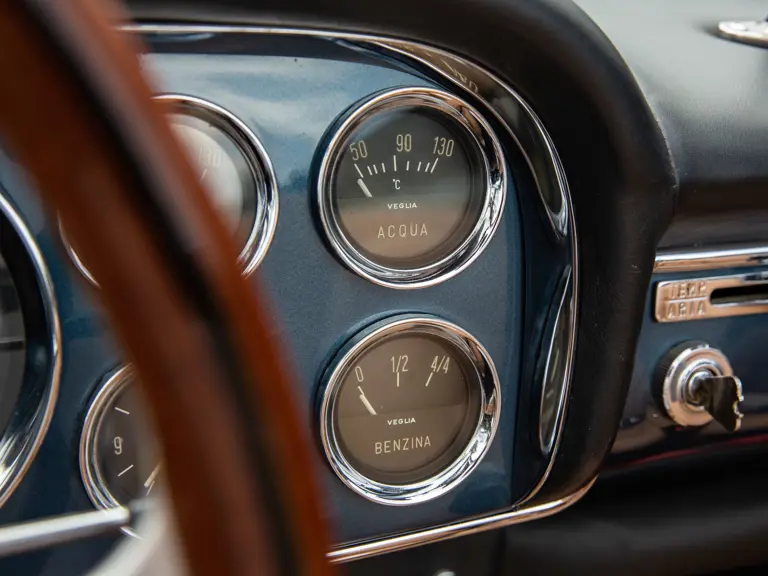
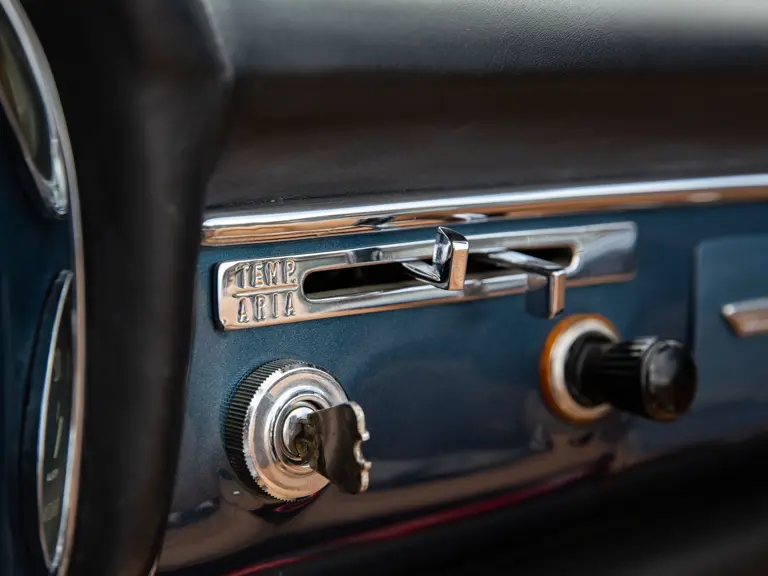
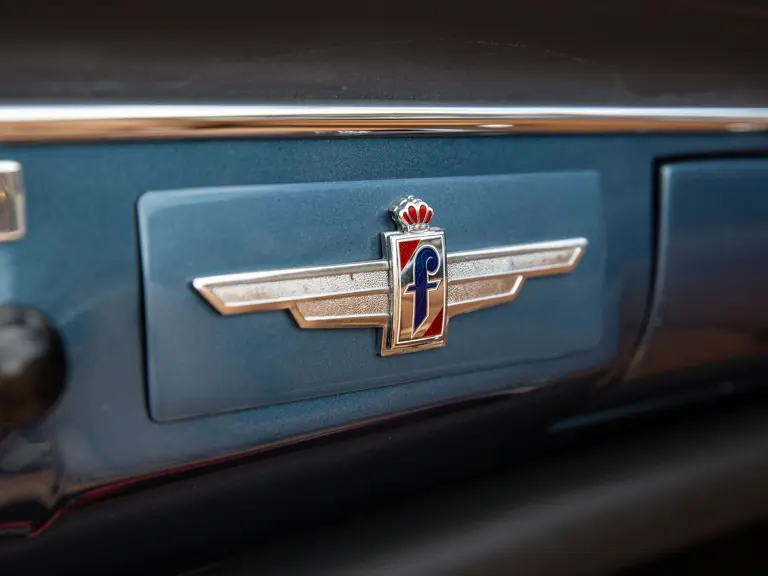
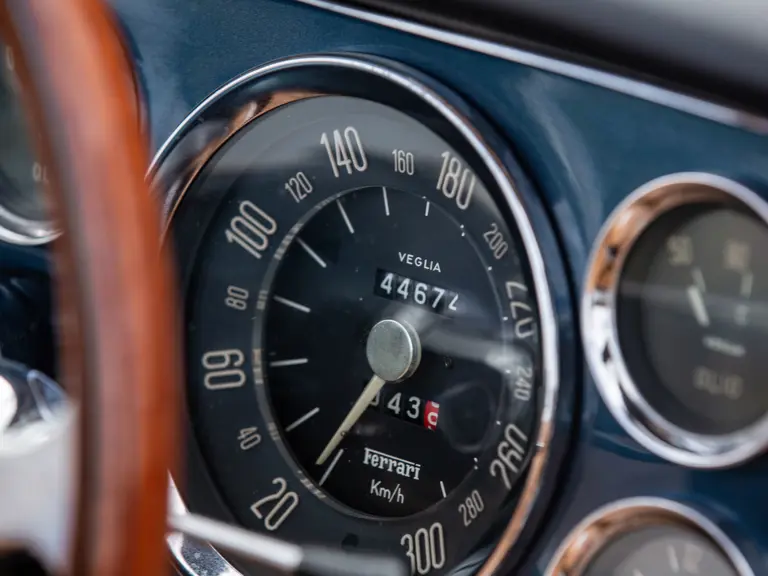
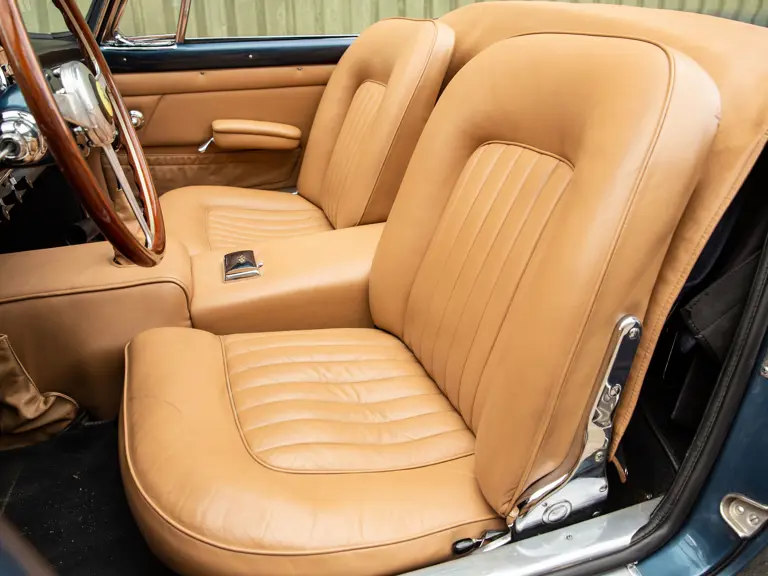
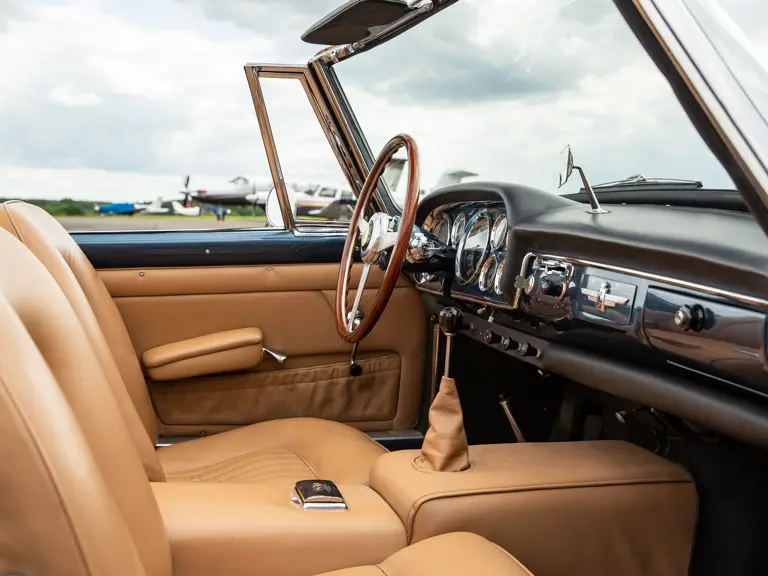

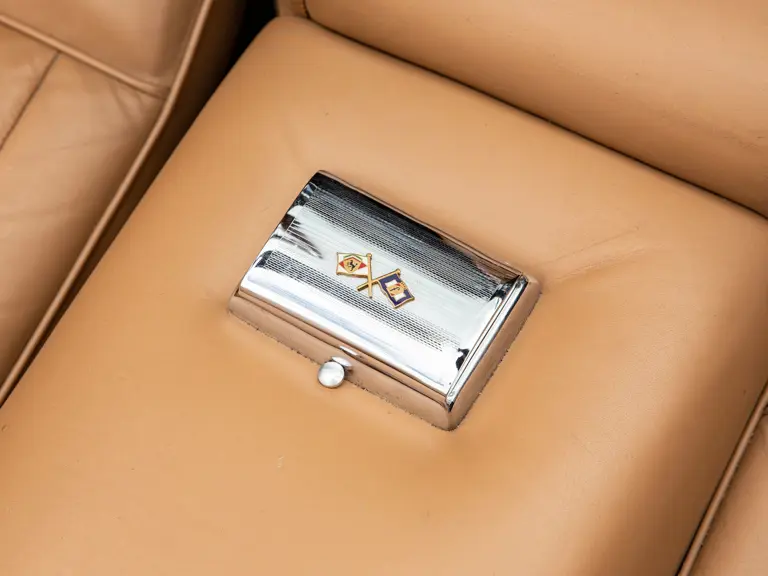
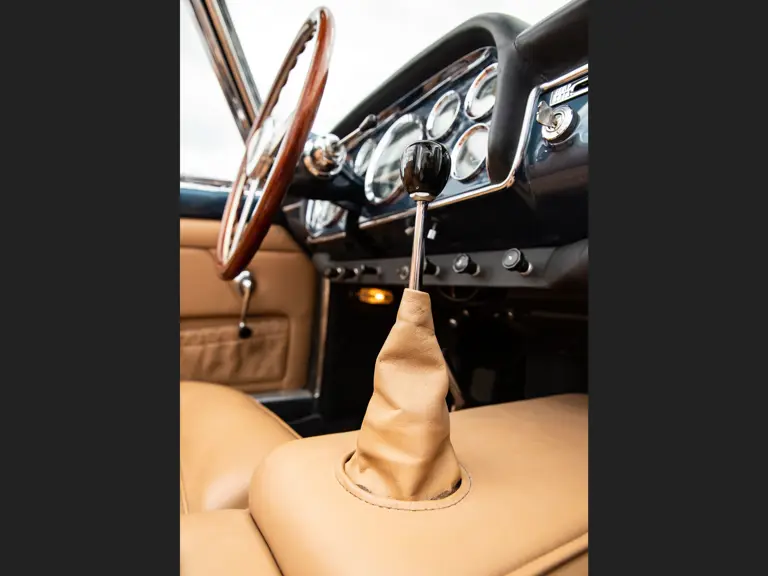
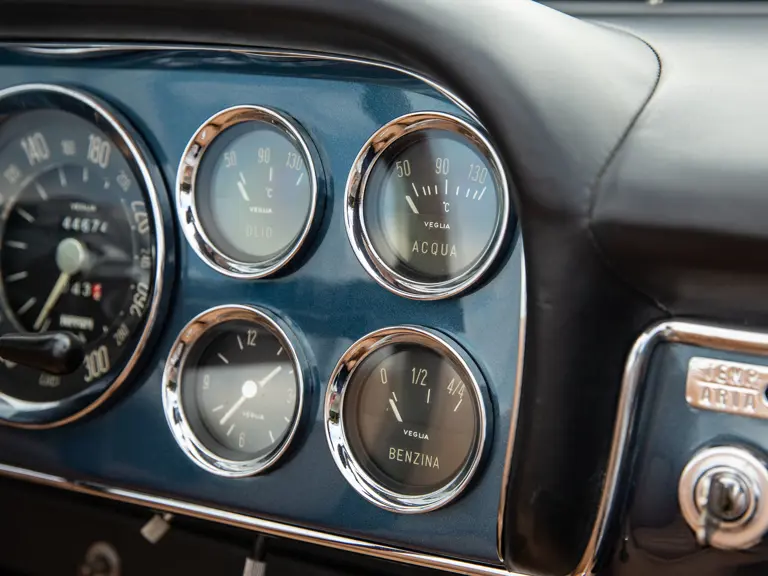

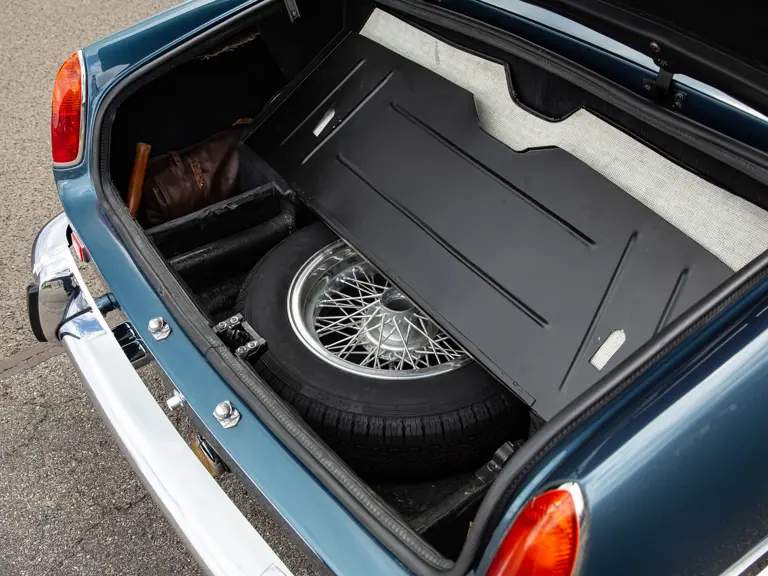
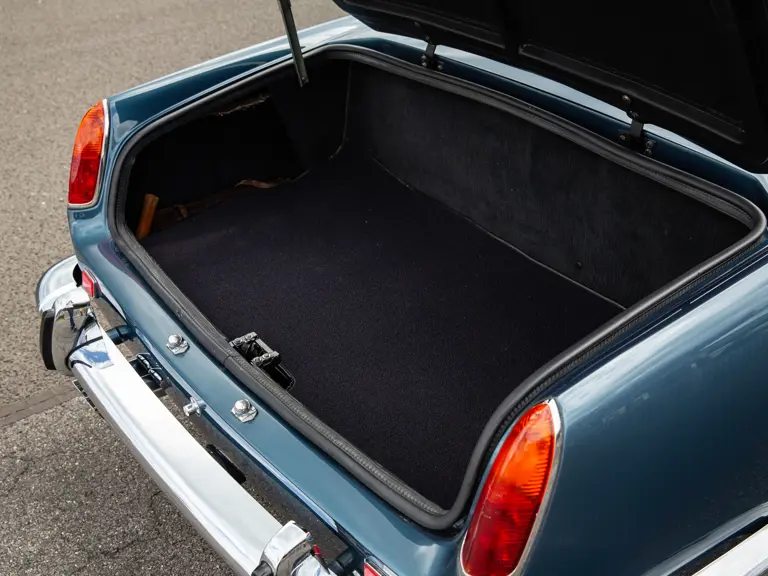
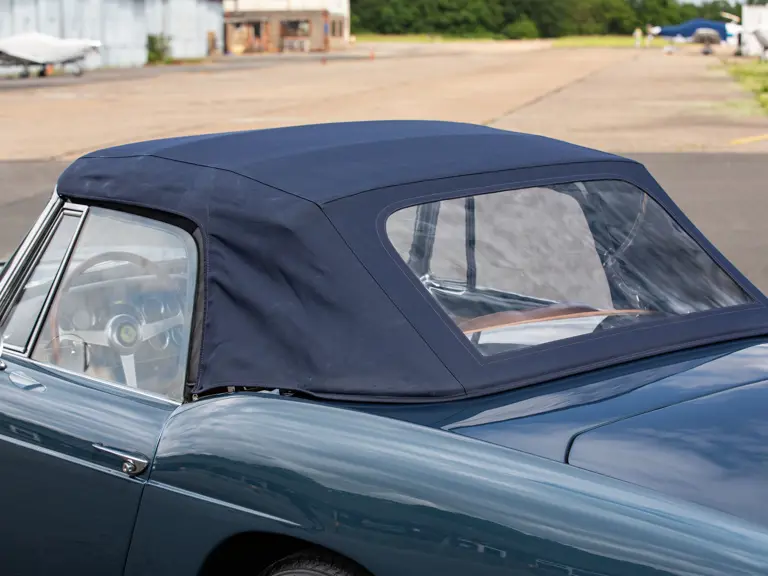
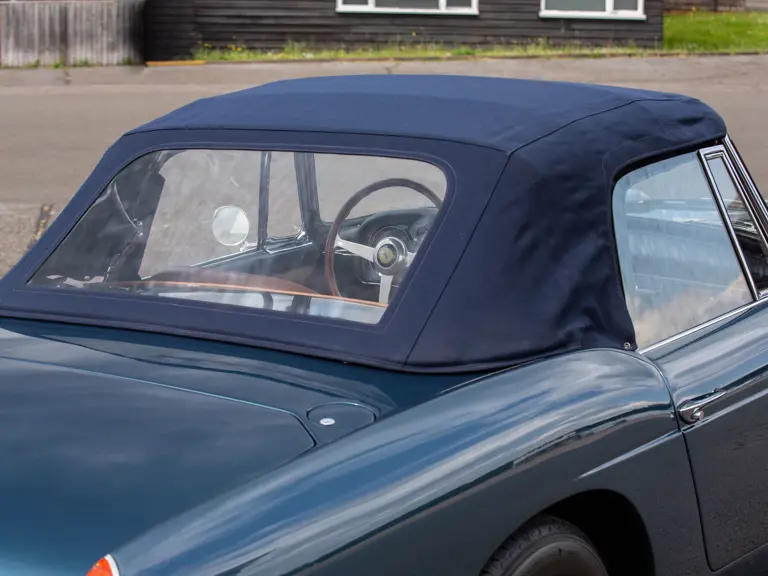
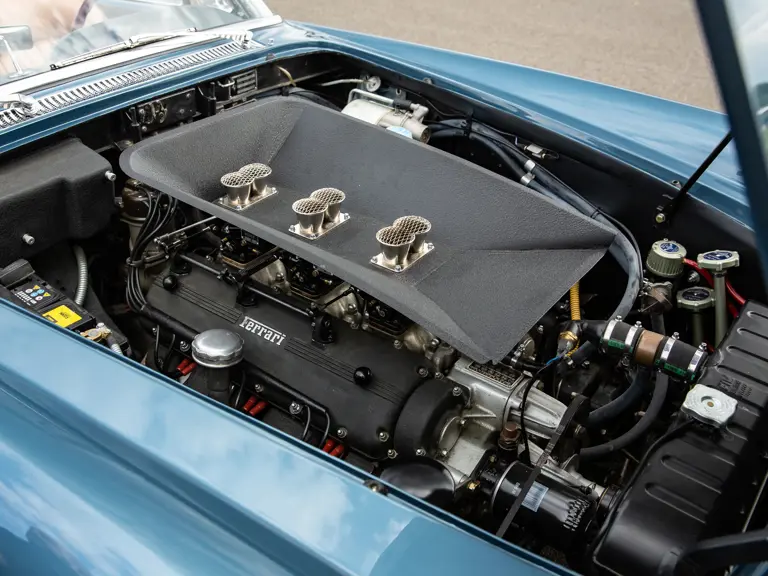
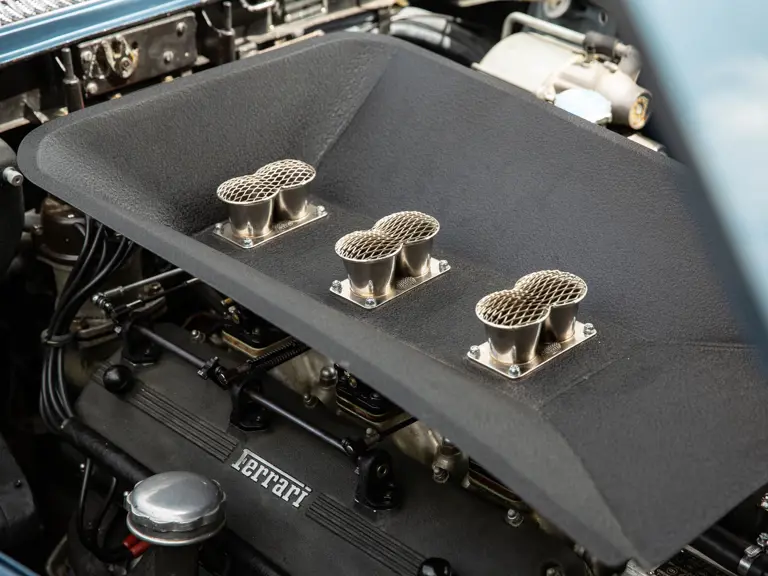
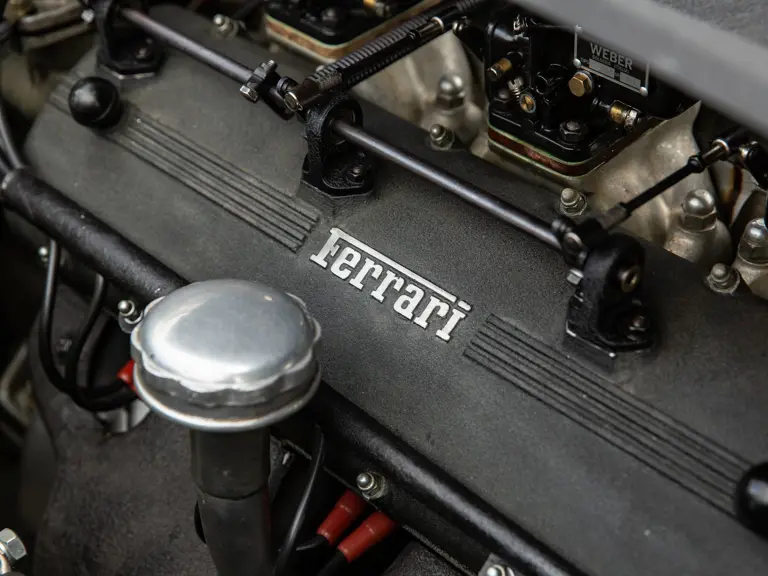
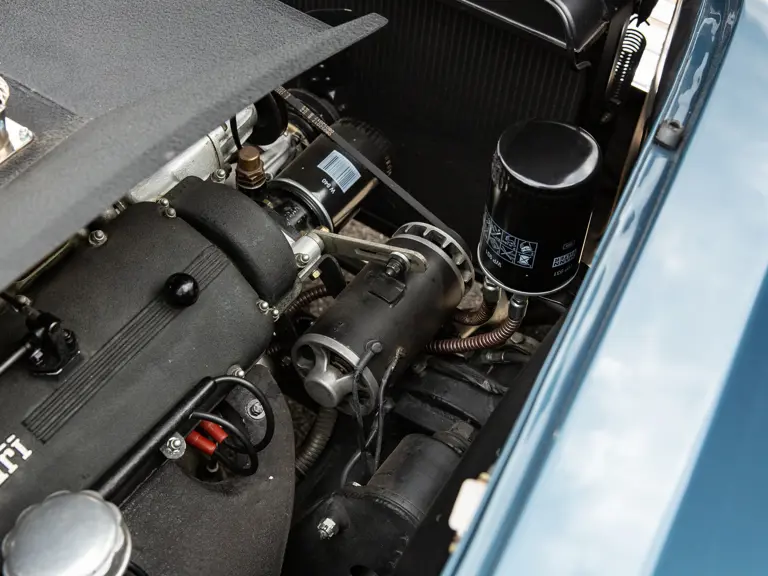
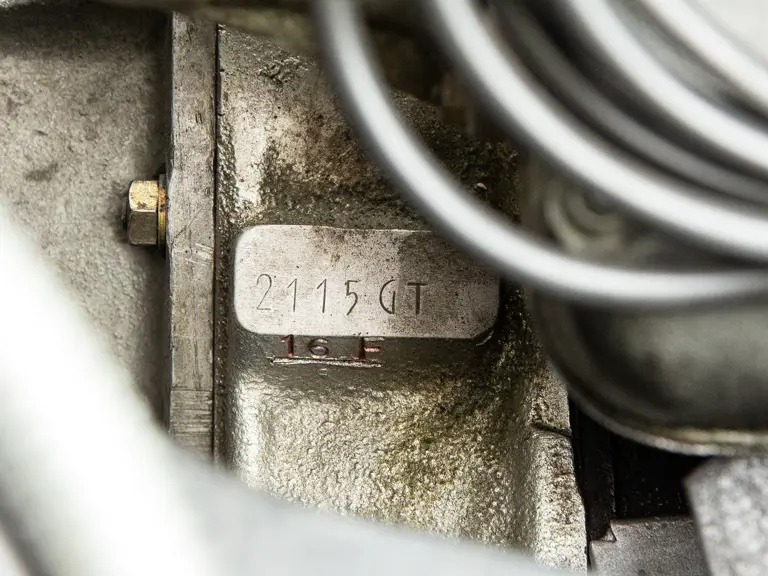
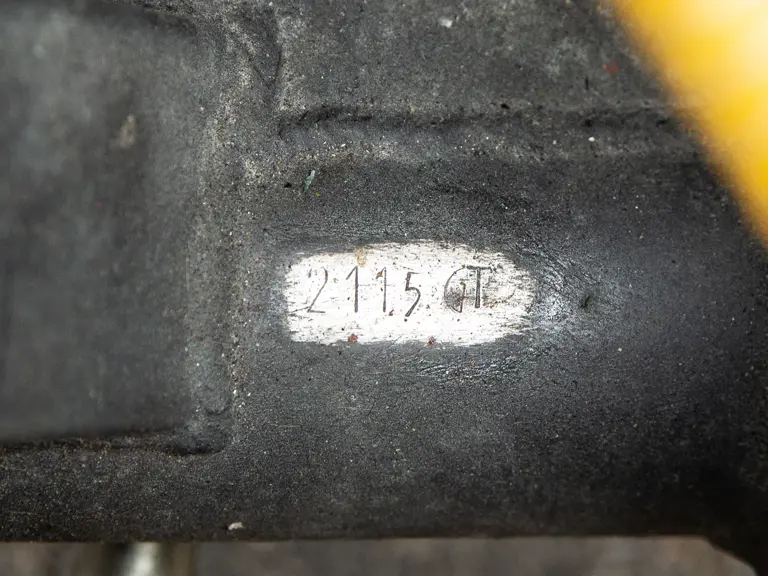
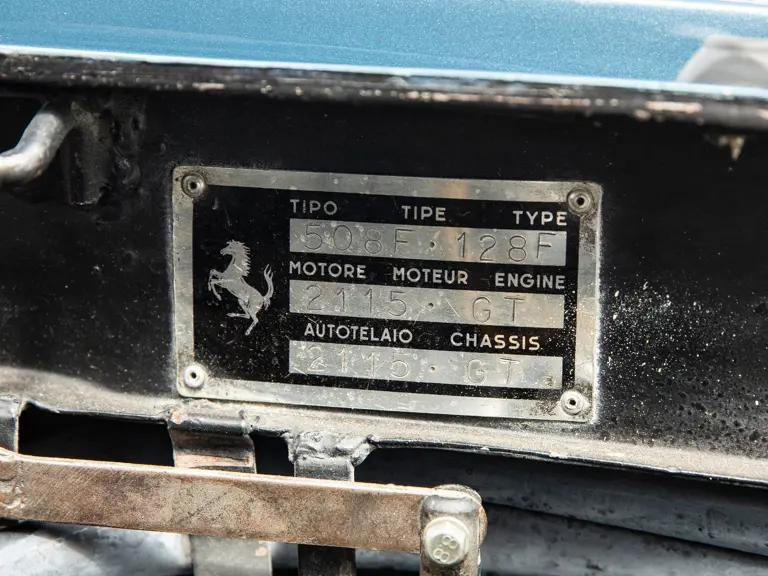
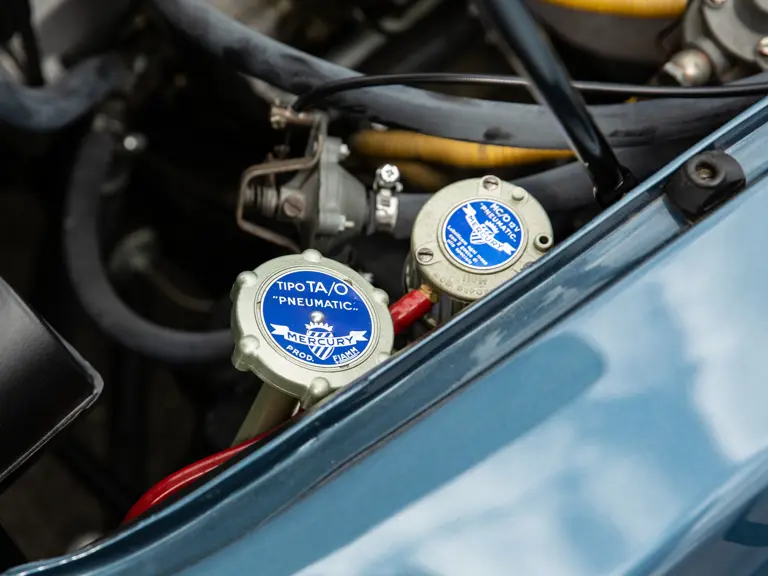
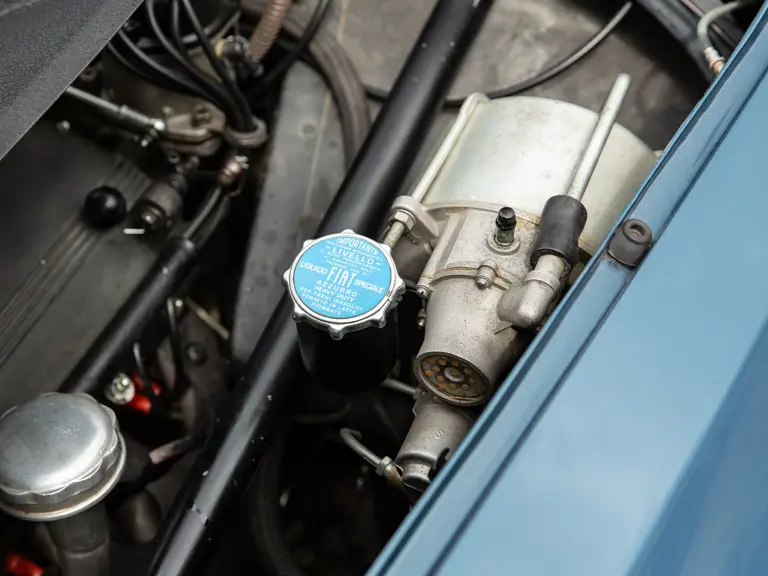
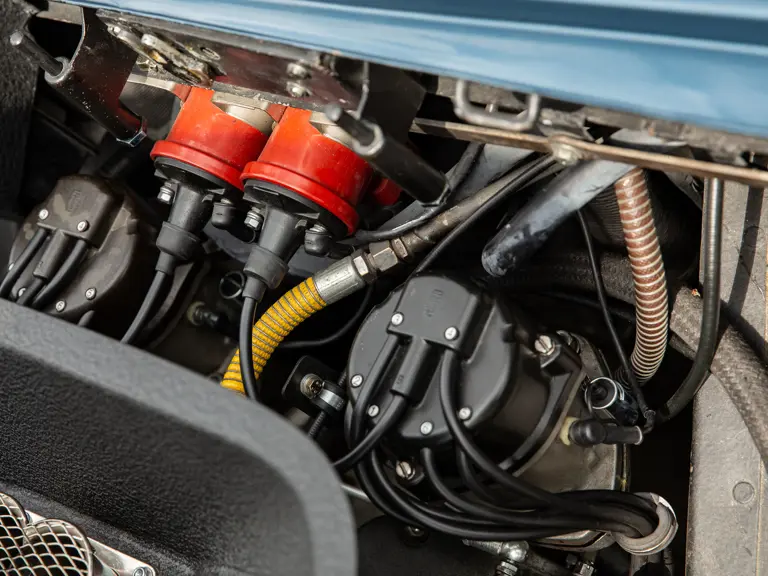
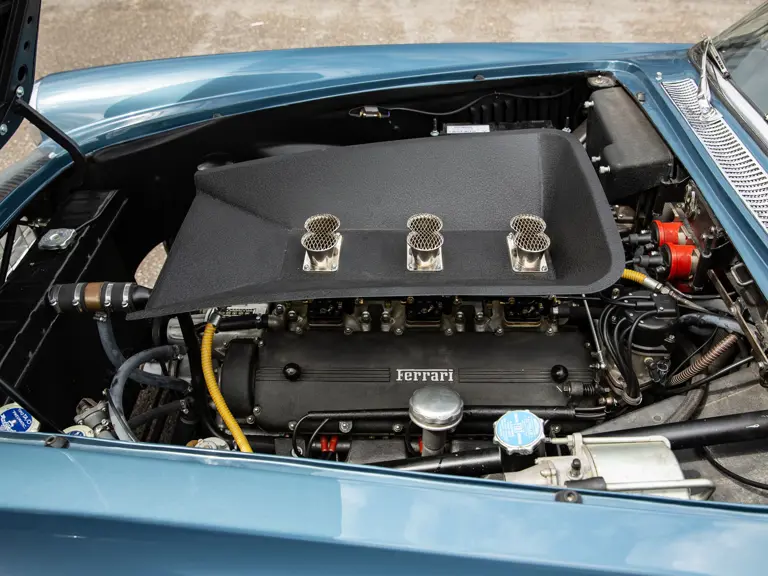
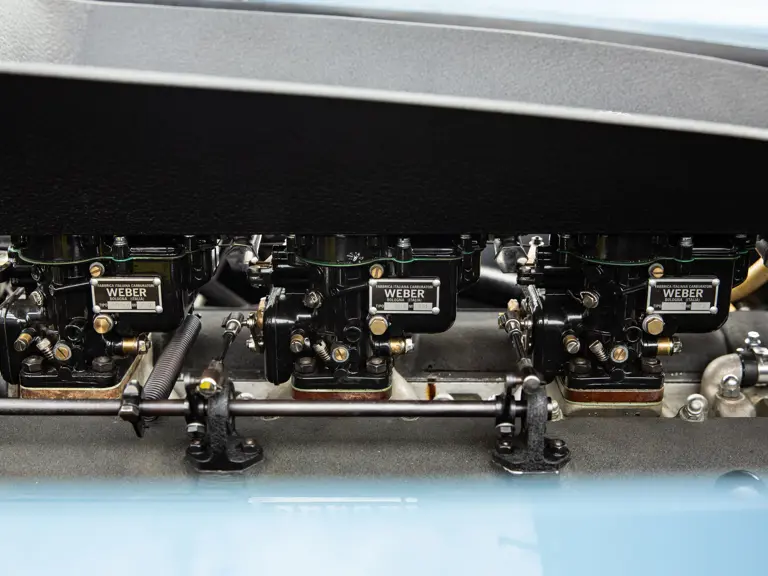
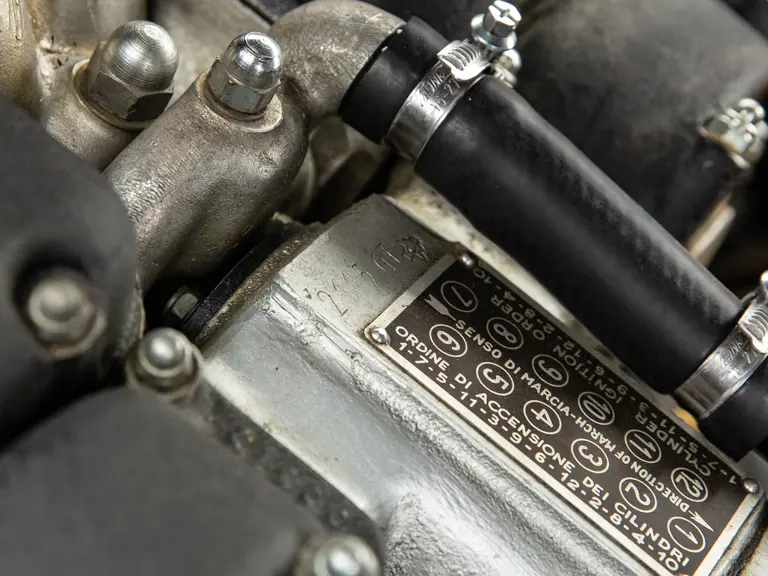
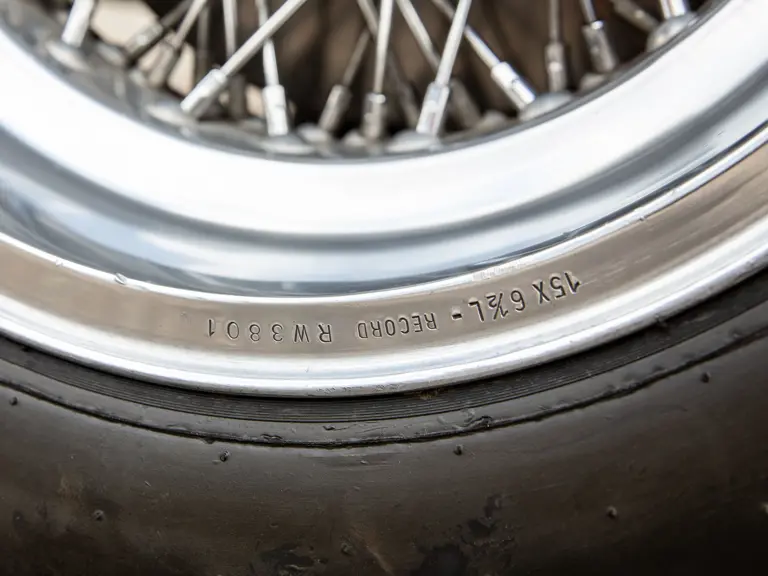
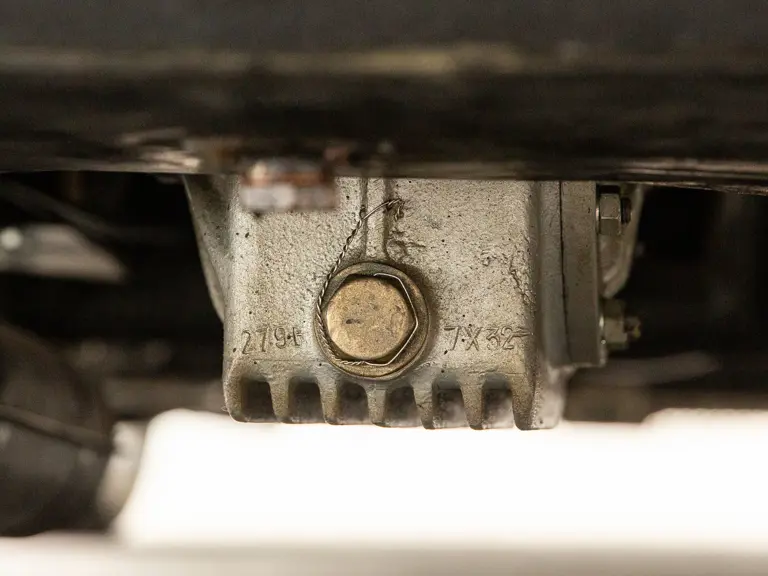
 | Monterey, California
| Monterey, California
